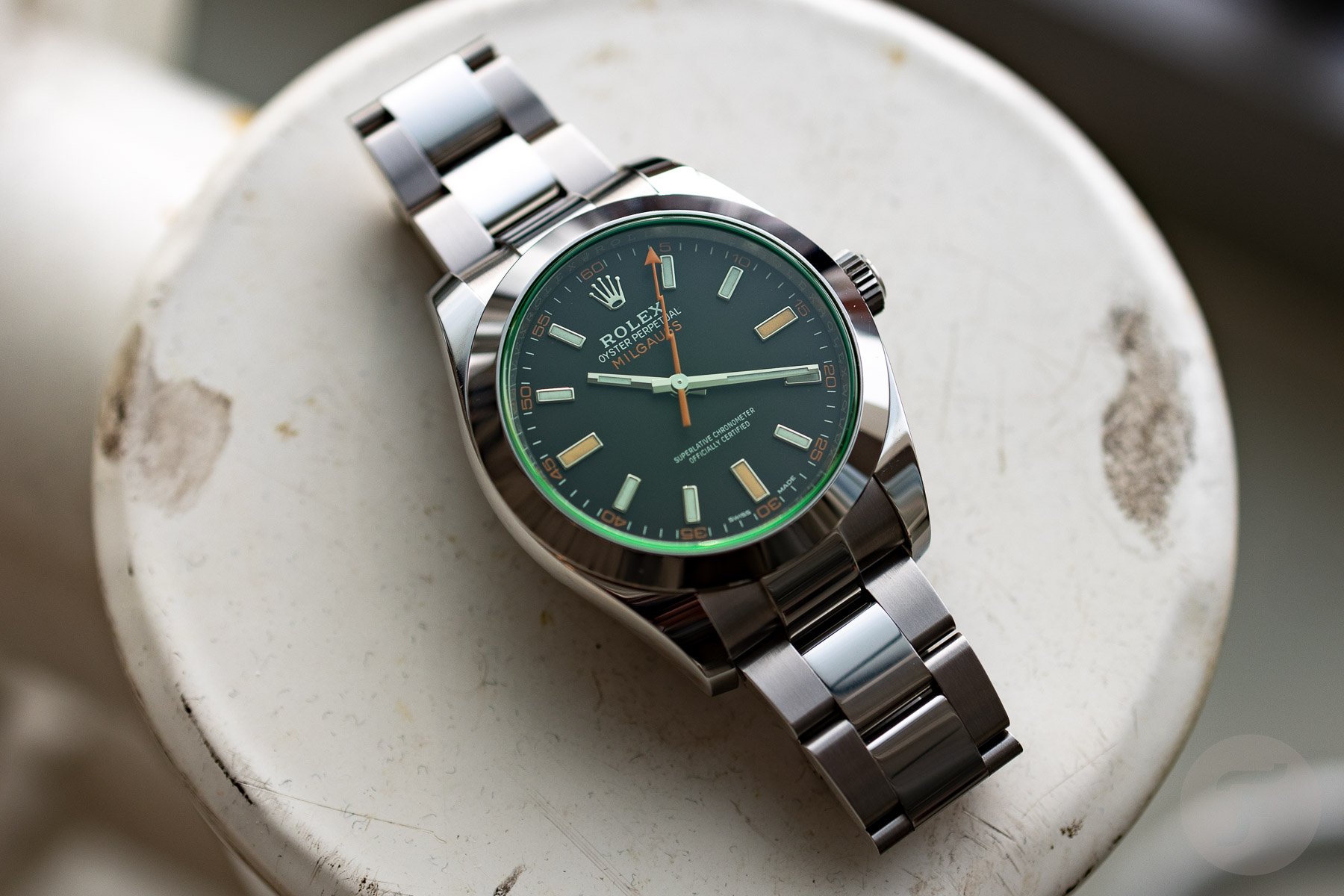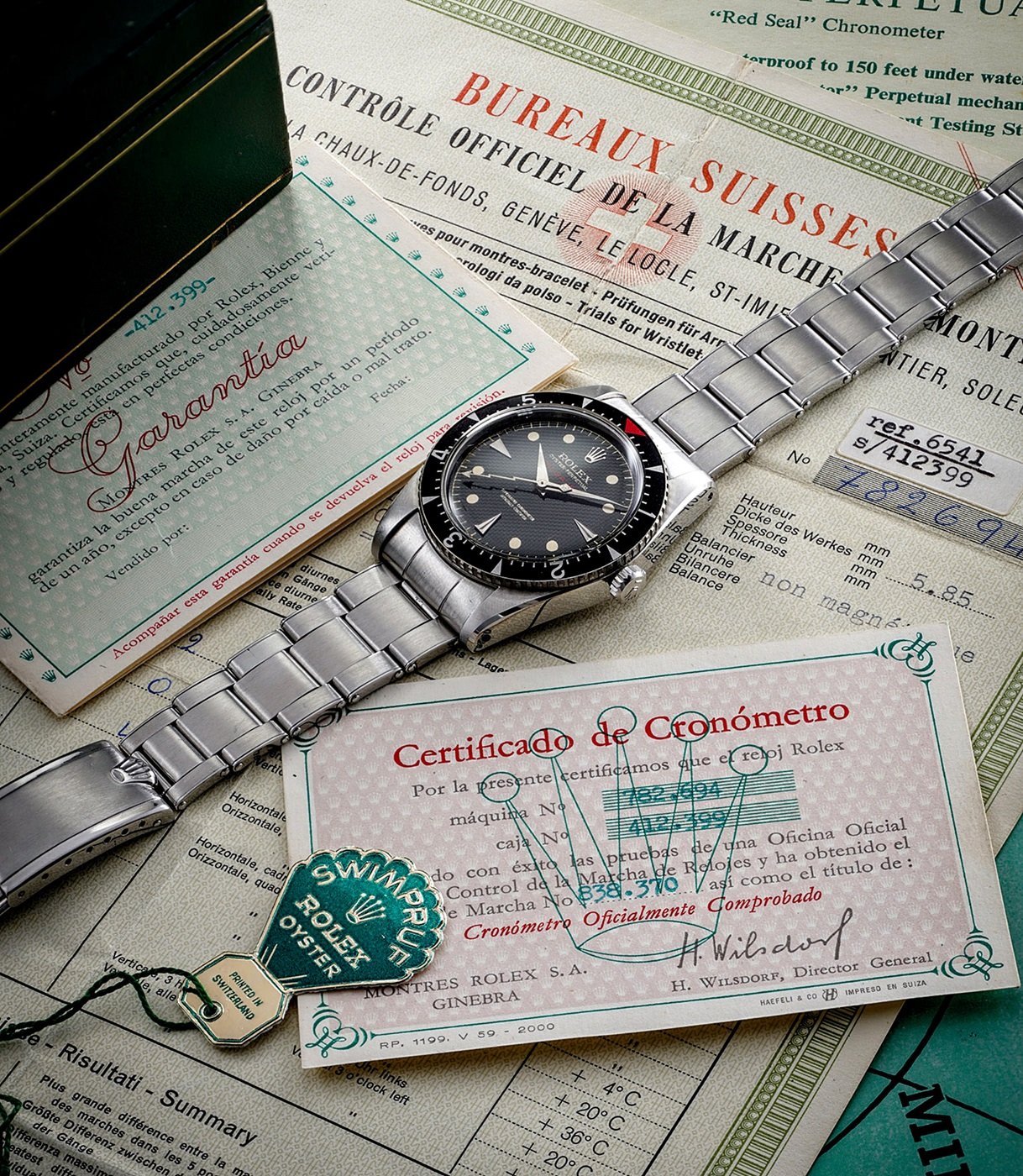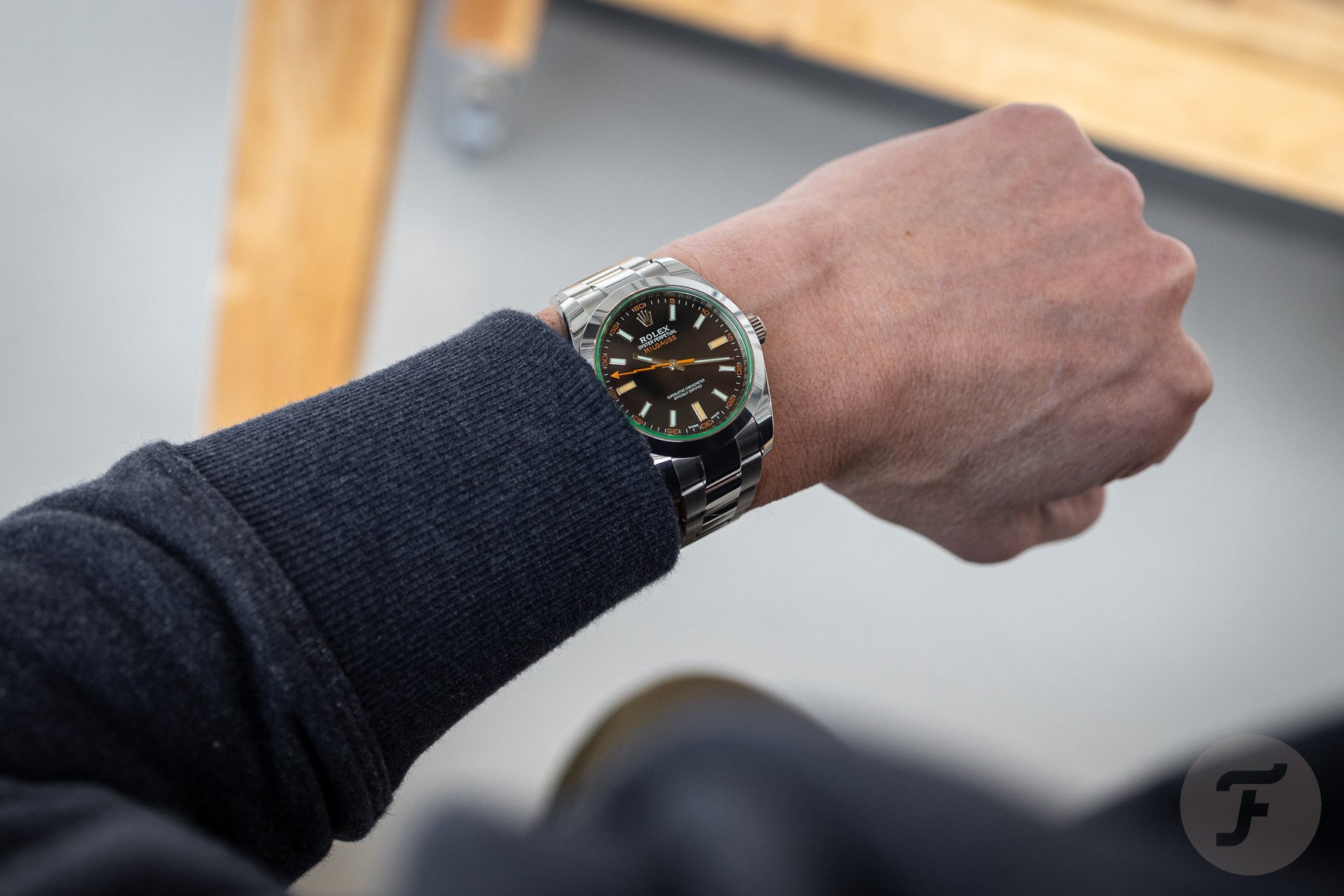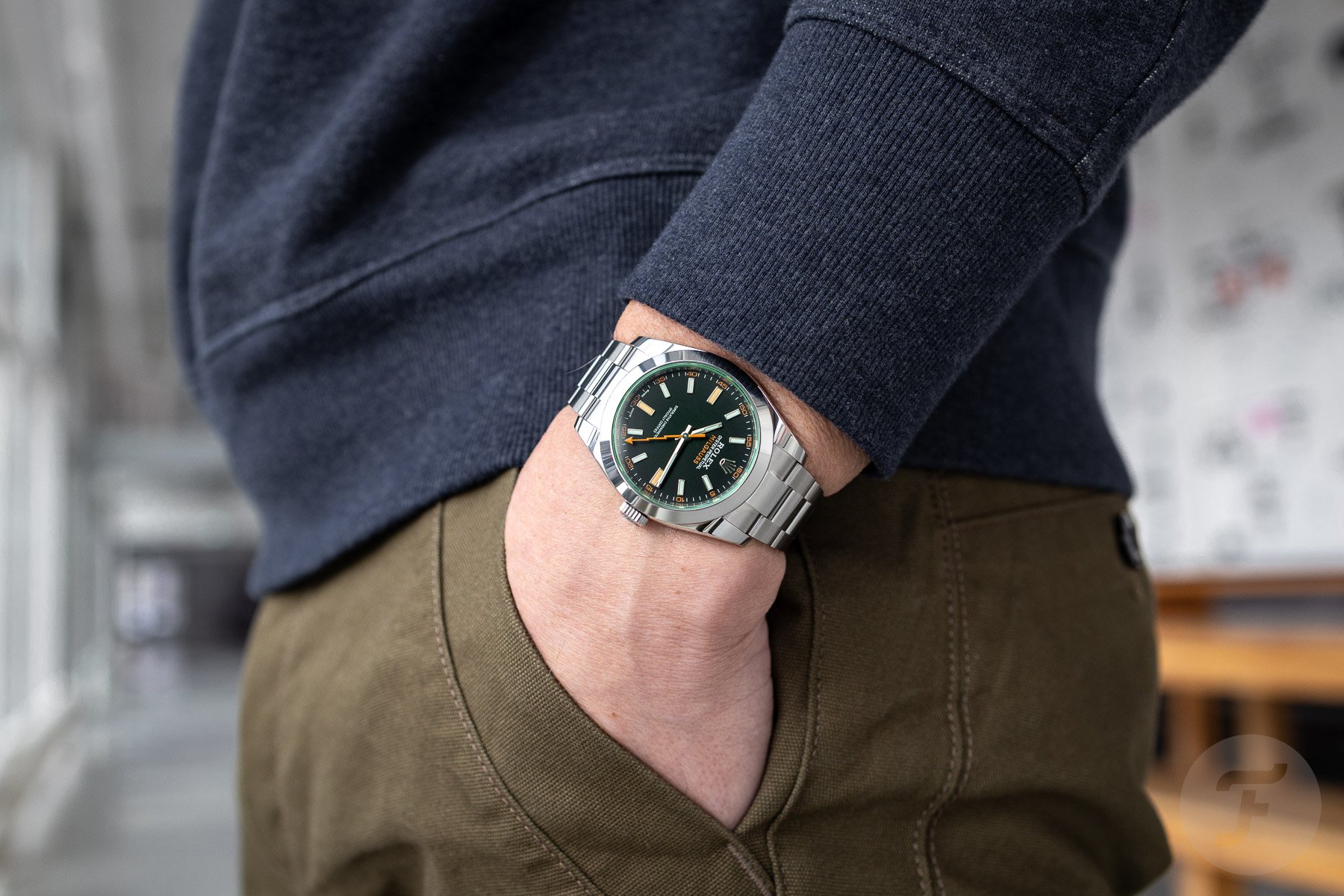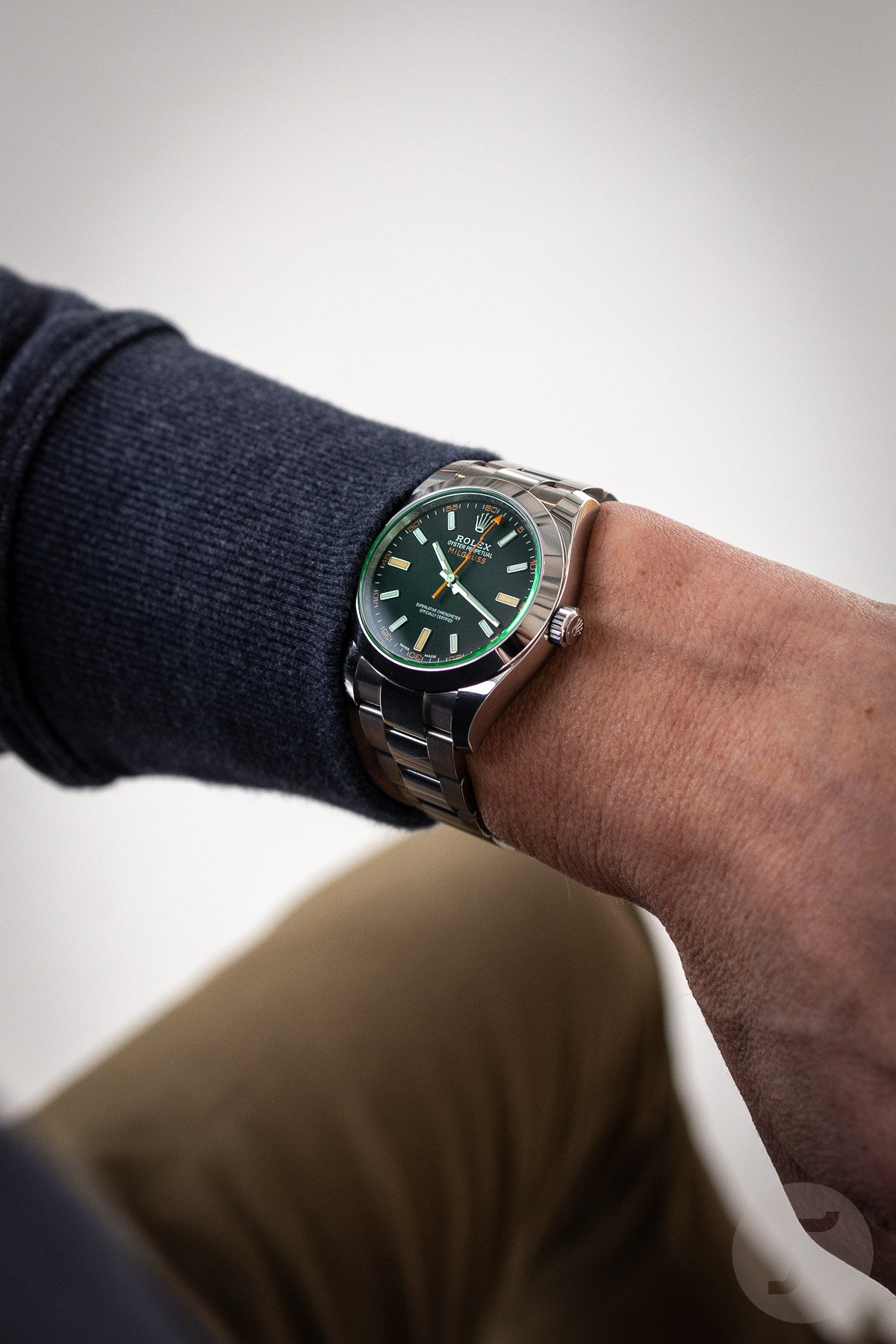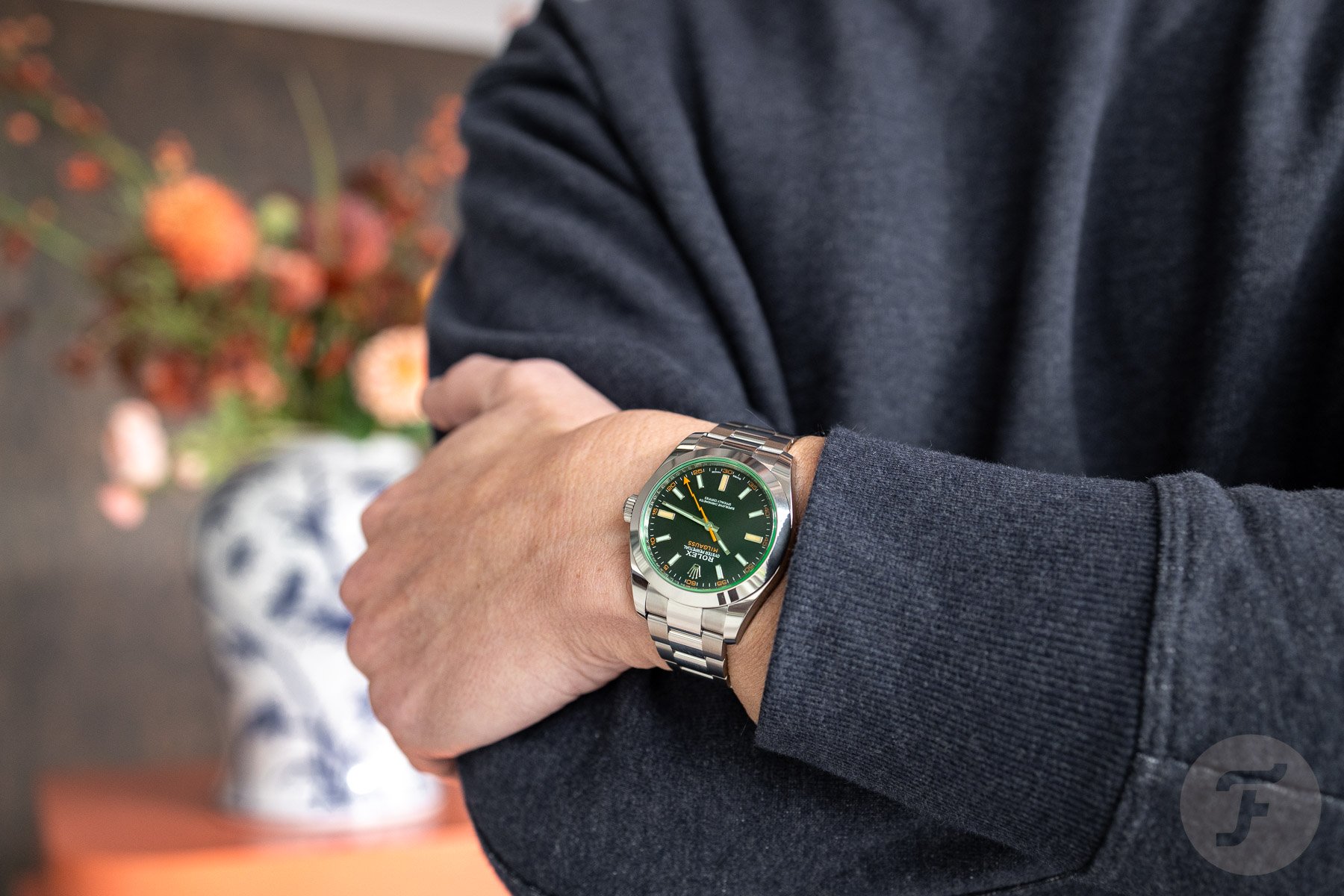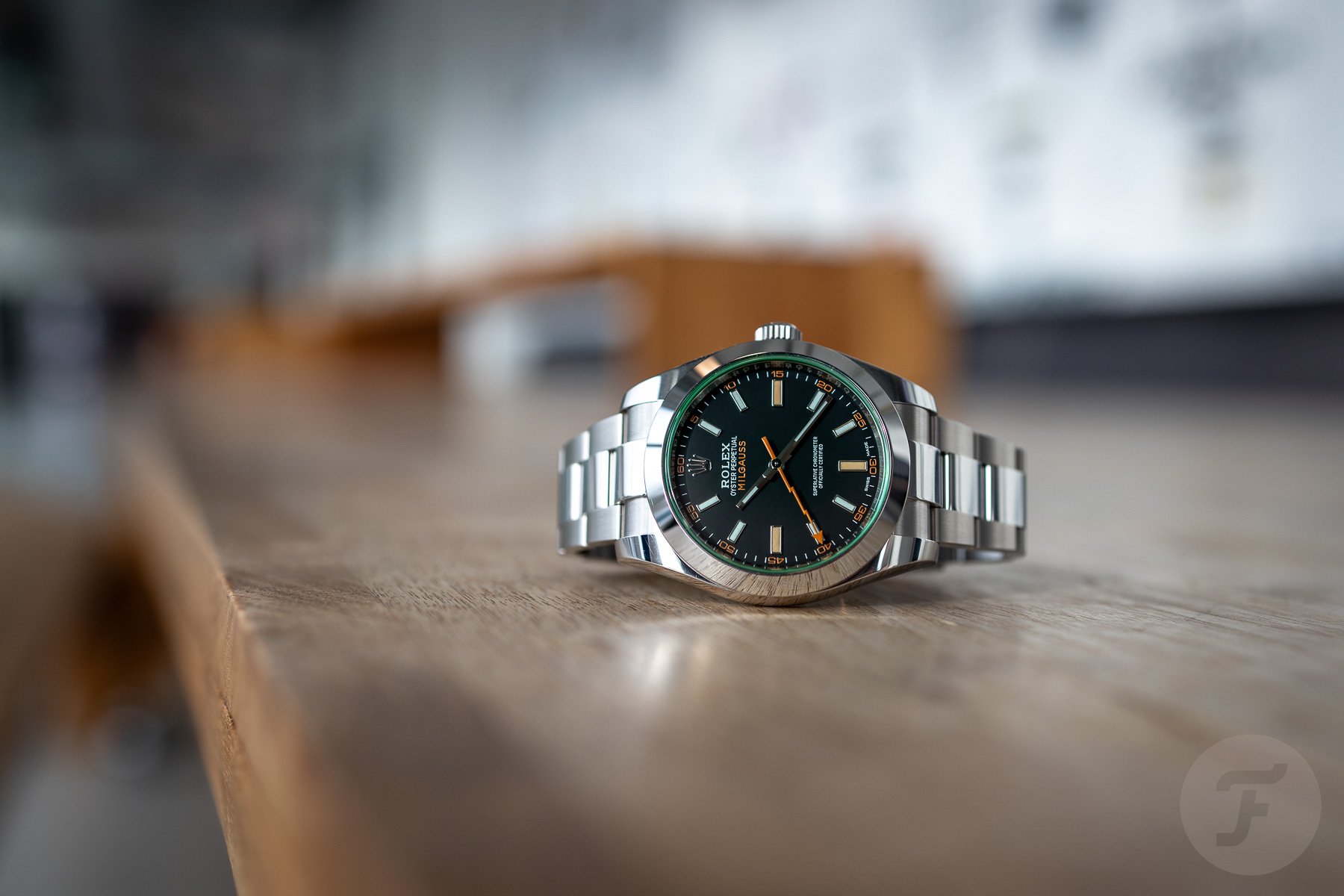A Monday Morning Eulogy For The Rolex Milgauss
As we gather here on this cold Monday morning in February to celebrate the life of the Rolex Milgauss, let us remember the color, antimagnetic properties, and accuracy it brought into the lives of so many watch fans. May its memory continue to inspire and uplift Rolex in the search for a worthy successor, and may we find strength in remembering the controversial and quirky timepiece as we navigate the watch world without it. Dear Fratelli, together, we can cherish the time we spent with the Milgauss and honor its legacy. We can also allow ourselves to look to the future with hope because there will — no, there must — be a new Milgauss on the horizon. The world of watches without one is just too bleak.
Rolex surprised both friend and foe during Baselworld 2007 with the unveiling of a colorful and quirky watch. It was the Rolex Milgauss 116400GV, a black-dial watch with a green crystal on top (in French, “GV” stands for Glace Verte). The more regular 116400 came with both black and white dials, and although they were less frivolous than the GV version, the presence of orange stick indexes, numerals, and a lightning-bolt hand also made those models stand out. It took worldwide watch fans approximately a year to warm up to the newest iterations of the Milgauss, a watch with an interesting and technical heritage.
Rolex Milgauss, you stood your ground when things got magnetic
The “grandparents” of the Milgauss 116400 were the references 6543 and 6541. According to Rolex Magazine, the first was developed in 1954 and produced between 1955 and 1957, while the ref. 6541 debuted in 1956. Both were made with some of the biggest brains in the world as the target audience — people working for CERN in Switzerland. As you might know, CERN is the European Organization for Nuclear Research, established in 1954. At CERN, magnetism is omnipresent and ready to wreak havoc on mechanical watches. Therefore, Rolex developed a watch that could resist, as the name already gives away, 1,000 gauss.
Both the 6543 and 6541 came in steel 38mm cases, but there were significant differences. The biggest one was the bezel style(s) of the later 6541. While the 6543 featured the same bezel insert as the Submariner, its successor was available with either a smooth bezel (for the US market only) or a rotating, fully graduated bezel with distinctive triangular markers. There was also no lightning-bolt seconds hand on the earlier 6543. That debuted with the 6541, which also featured dial legs and a dust cover for the movement, unlike the 6543. Finally, the earlier 6543 had a 19.7mm lug spacing, making it impossible to wear it on the 20mm-wide Oyster bracelet that was standard on the 6541.
Another Milgauss forefather worth remembering
The Milgauss ref. 1019, which was in production between 1960 and 1988, is perhaps the least known of the product family. You might argue that this 38mm watch doesn’t look like a Milgauss with its metallic dial and straight seconds hand. Still, the bright red lettering on the dial clearly states that this technical-looking creature is indeed an antimagnetic Milgauss.
To say the 1019 was not the biggest of sales successes would be the euphemism of the year. It just sat there in the Rolex catalog, not moving, and when it got axed in 1988, nobody really noticed.
The return of the Rolex Milgauss
It took Rolex almost two decades to come up with a worthy successor to the 1019. But when it was finally introduced, it wasn’t instantly popular. It took a while to win the hearts and minds of customers. The Milgauss 116400 had gotten a 2mm increase in diameter, making it a 40 × 13.5mm watch with a 49mm lug-to-lug length — a more modern size that was ready for the modern wrist. So why wasn’t it an instant success in a world where flashy, colorful watches from the likes of Hublot and Richard Mille were so trendy? You can’t blame the Milgauss’s niche functionality. After all, the majority of Submariners never go diving properly, and the majority of Explorer IIs never go spelunking. Maybe potential Rolex buyers just need a bit more time to warm up to a watch that’s not a slow evolution but a shocking reanimation.
Once the public got accustomed to the new-generation Milgauss, it became a bit of a cult watch, especially when Rolex dared to release the Z-Blue, a version featuring a blue dial with a green crystal on top. Still, the Milgauss was always a bit odd, also from a technical perspective. Take the caliber 3131 that it used from the start until its discontinuation in 2023 as an example. That’s the same antimagnetic, chronometer-certified movement that we also saw beating inside the previous Air-King ref. 116900 (speaking of polarizing and quirky watches). In fact, both watches also had the same case and bracelet. Only the dials were different. In a way, this rendered the Milgauss obsolete, and its removal from the Rolex catalog last year wasn’t a big surprise.
Just like the new latest Air-King…but different
The arrival of the updated Air-King ref. 126900, could also mean there’s a Milgauss ref. 126400 on the way. The newest Air-King with its redone dial has a redesigned 40 × 47.4 × 11.6mm case with a 20mm lug spacing and crown guards. It’s no longer rounded but has more defined, sharp edges like a proper tool/sports Rolex. Inside the case beats the 4Hz caliber 3230 with a power reserve of 70 hours, and it’s outfitted with a Paraflex shock absorber and a blue Parachrom hairspring made from an alloy that is immune to magnetic fields. Also, since it’s a Superlative Chronometer, the claimed accuracy is ±2 seconds per day.
Rolex should not do what it did last time by just making the Air-King and Milgauss cosmetically different. I propose a slightly more technical approach. The movement can be the no-date caliber 3230, but the case should be done in a different alloy. The 40 × 47.4 × 11.6mm dimensions are perfect, but maybe the crown guards should go. But what definitely should go is steel. Instead, I propose a Milgauss in a lightweight RLX titanium case with a matching Oyster bracelet.
The previous Milgauss, with its shiny parts and, above all, green crystal may have looked a bit like a mad scientist (could this also be the reason it never was the biggest of successes?). The next one, however, should look like a rugged Nobel Prize winner. Rolex should keep the lightning bolt and look for inspiration in the Milgauss refs. 6543 and 6541. I prefer the smooth bezel of the 1956 ref. 6541, but I’m open to surprises.
A final farewell to the Rolex Milgauss 116400GV
Wearing the Milgauss 116400GV is quite a festive affair. Unlike the Z-Blue version, the black-dial GV is quirky but not over the top. It really pops, so to speak, and it does so even after seeing it around for 17 years. But with the release of the updated, more instrumental Air-King followed by the 42mm Yacht-Master in titanium, the rounded case of the 116400 somehow feels outdated. And so do the watch’s shiny elements, such as the polished middle links of the Oyster bracelet. Wearing it makes you understand why it had to go.
But the Milgauss doesn’t have to be gone forever. On the contrary, it should be resurrected as soon as possible. And Rolex can make it happen; there can be no doubt about that. Can you imagine a Milgauss in all-brushed titanium with a bold yet instrumental dial? I can. And I don’t merely imagine it; I also strongly believe in it.

